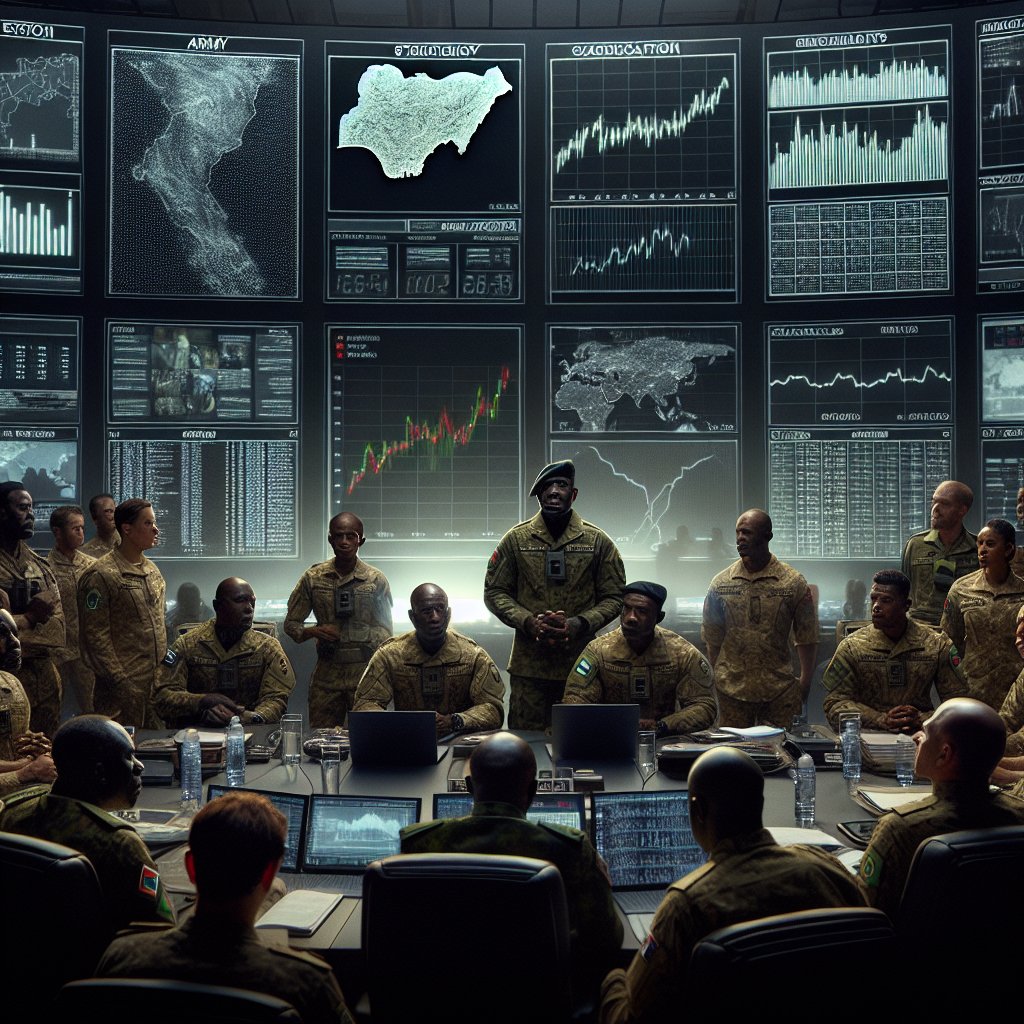Image created by AI
Nigerian Military Quashes Coup Plot Rumors Amidst Economic Crisis
The Nigerian Army has recently made a firm refutation following allegations of a coup plot that caught the attention of the country and the media alike. A report that surfaced from Sahara Reporters indicated that the Presidential Guard Brigade, a unit responsible for the safety of the President of Nigeria, was in a state of heightened alert due to fears of a potential military takeover. This report asserted that extraordinary meetings between military leaders and the President had been convened in light of these rumors.
In a strong condemnation of these claims, the Defense Headquarters (DHQ) of Nigeria called the reports unfounded and completely false. The DHQ has advised the Nigerian populace to ignore such speculation and has reassured the public of the military's unwavering commitment to the defense and preservation of the country's democracy.
The denial comes at a time when Nigeria is grappling with a severe economic crisis, which analysts warn could put the nation on the brink of disaster. Inflation, unemployment, and decreasing oil revenues have painted a stark picture of the current situation in Africa's largest economy. Such economic turmoil often breeds uncertainty and unrest, creating an environment rife with rumors and misinformation.
There is historical precedence for concern over coups in Nigeria; the country has witnessed multiple military takeovers since gaining independence in 1960. However, the present-day military leadership is keen on distancing itself from such undemocratic practices, reaffirming their loyalty to the civilian government.
The Nigerian military's public relations office has also stepped in to clarify the situation, iterating the army's role as a protector of the country's democracy and constitution. They have further called upon the media to be vigilant in their reporting, to verify information before dissemination, and to support the nation's democratic institutions.
The repercussions of the coup plot rumor were immediate, with a noticeable impact on the nation's already fragile economy. The Nigerian stock market and the Naira saw fluctuations as investors reacted nervously to the report. It is instances like these that highlight the critical intersection between political stability and economic confidence, and the military's response aims to shore up both in the wake of the alarming claims.
In the end, the Nigerian Army's categorical denial is seen as a necessary step to maintain order and reassure both the Nigerian public and the international community of the strength and stability of Nigeria's democratic institutions. As this episode demonstrates, transparency and swift communication by the military are paramount in confronting any such destabilizing rumors head-on.
While the DHQ has not expanded on whether any investigations are underway to trace the origin of the coup plot reports, what remains clear is the military's stern stance against any insinuation of its involvement in activities that could undermine the country's democracy. With crucial focus on navigating the economic crisis, Nigeria cannot afford distractions or disruptions that coup rumors are apt to incite.
#GOOGLE_AD










